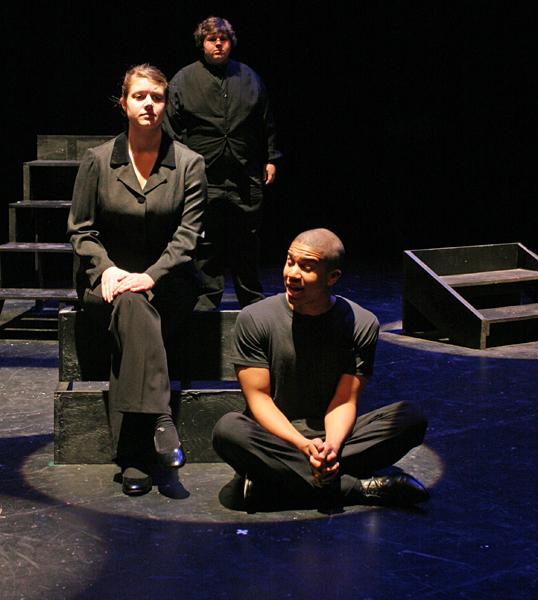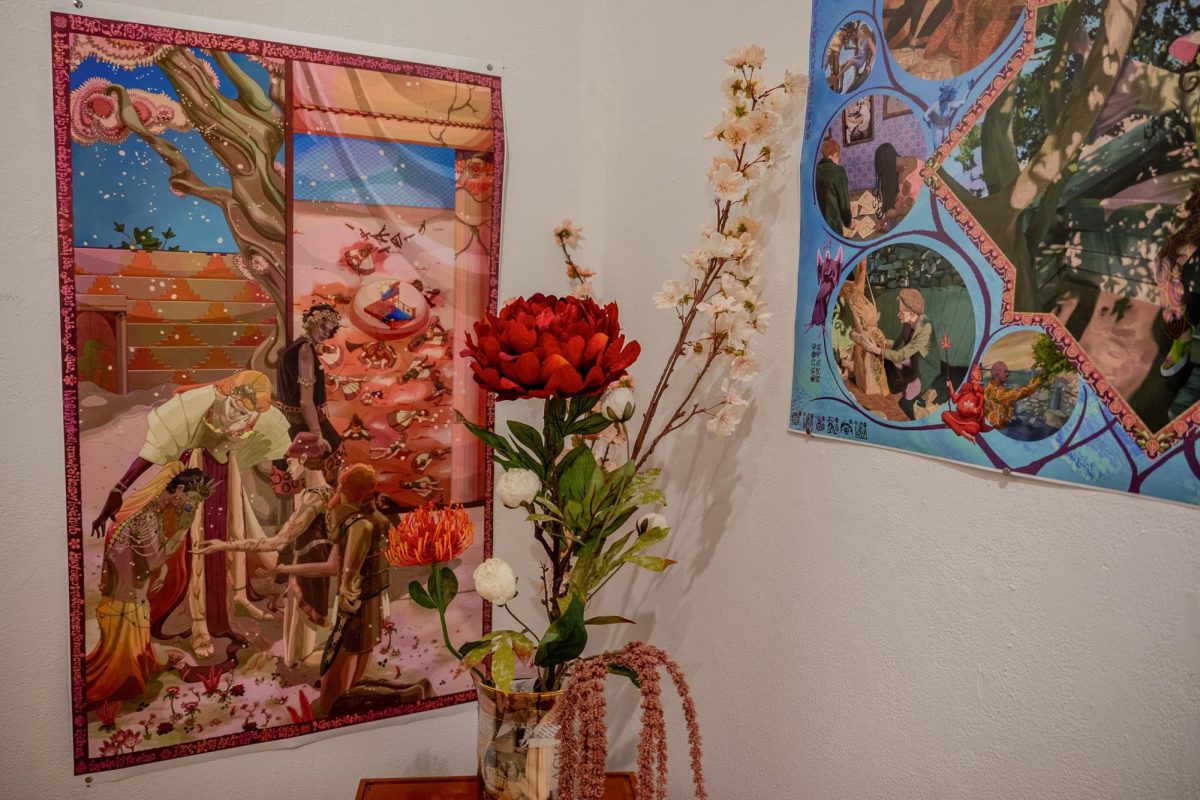
Jaysen Wright’s MAP, “The Ties That Bind”, explores issues of sexuality, shame, and illness as well as those of compassion, strength and love. Co-directed with Caitlin Davies, the show debuted last night and will run through Sunday.
In a series of three vignettes, Wright collects the history of gay relationships around love, suffering and compassion. This first piece, entitled “Voices in Time”, follows gay issues from the late sixties to a possible future. The second piece, “Summer Quartet”, explores the loss and fear between four friends, one of whom has been diagnosed with HIV. The play develops this focus on the inter-relational repercussions of HIV in the final section, “Looking Back,” chronicling the story of two lovers living with HIV.
The characters flush from anger to support, from devastation to love, and have already changed the perspectives of the actors themselves.
“These type of things are so easy to push away … but tapping into the sense of total loss completely changes your perspective,” Kevin Trudel ’12 said. Trudel plays Vince, the best friend of an HIV victim.
“Ties That Bind” also pays homage to the fortitude and strength of love, between same sex partners or otherwise.
“We did a lot of improv exercises … to establish friendships and connections between actors,” Wright said.
“I broke down quite a bit in rehearsal,” Lexy Leuszler ’12 (Julia) said. “I think the hardest was playing those improv games and talking about an emotion as difficult as grief and absolute loss.”
In addition to forging bonds over shared hardships, the actors were asked to build a back story around the first time a fellow character got drunk and other hilarious “past moments”. The effect is an on-stage closeness is as believable as it is devastating.
Despite its focus on the repercussions of the AIDS epidemic, the play also promises a degree of hope in its focus on inter-character relationships. The show’s final vignette focuses on the relationship between two men, only one of whom is HIV positive.
“The final piece really brought home the concept of disease and the reality of living with it,” said Rev Darragh ’12, who plays Danny, the HIV negative partner. “The process really widened my perspective.”
Wright asserts that the piece is intended to touch the audience in some way, but leaves the specifics to the audience. Whether the cumulative effect of his three semesters of work is shock, sadness, empathy or fear, it is most certainly also a profound awe in the power of human compassion.



















































